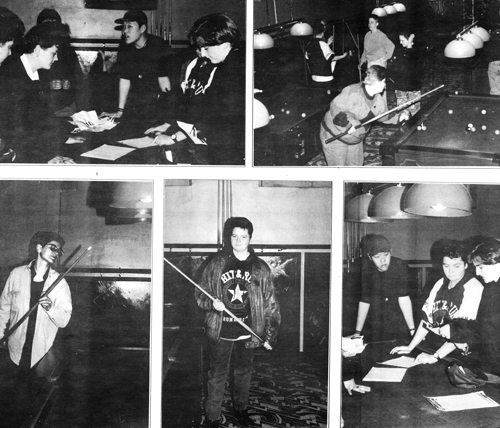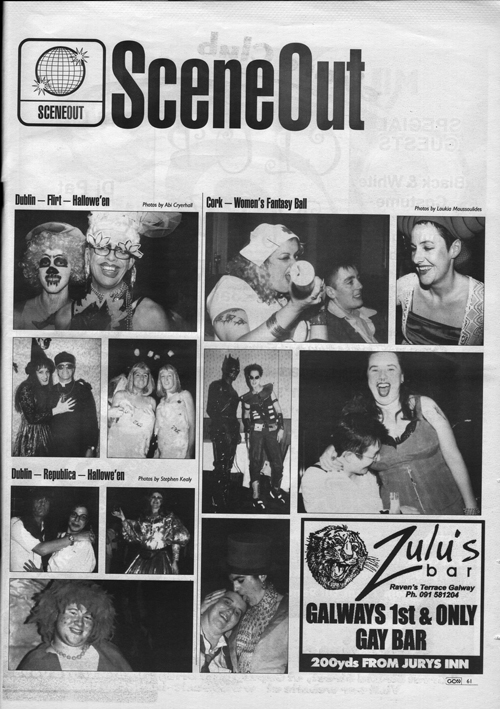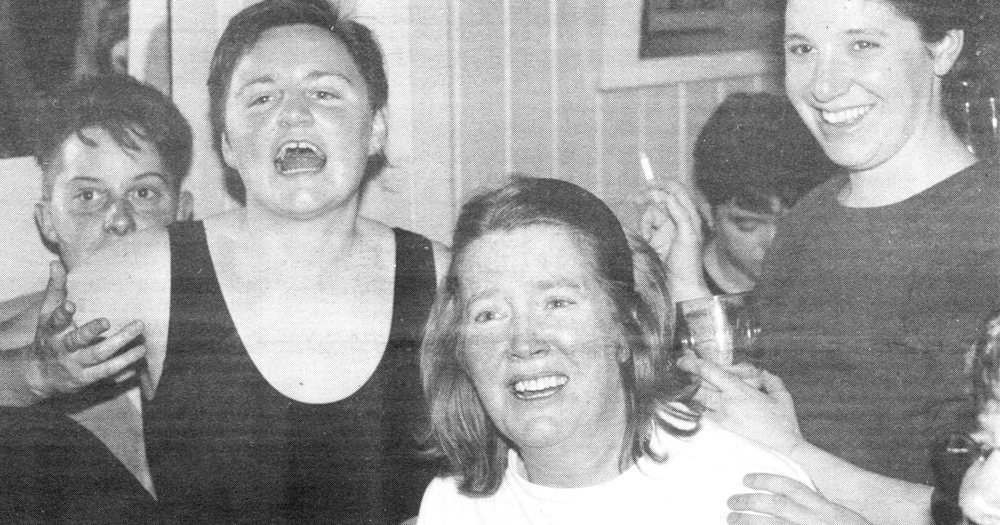Lesbian erasure is a massive problem both outside and within the LGBTQ+ community, particularly in Ireland where female sexuality, in general, has a long history of being stifled and punished when expressed. However, despite this troubled history, lesbian communities have managed to thrive and create vibrant and fun spaces for women who love women to appreciate themselves and each other.
Looking back at LGBTQ+ history can be an extremely difficult thing to do. LBGTQ+ people in the west have up until recently (more recently than people often care to remember) been forced to hide their identities and thus their communities from the general public. Our communities have, up until now, struggled to visibly exist due to criminalisation and a cultural disdain which left LGBTQ+ people living in fear of violence and ostracisation.
Documentation is not something that comes naturally with this type of lifestyle. On top of that, for a long time what little sources and voices we did have were erased and silenced by a homophobic agenda that wanted our existence and our stories to be lost.
Much of the documented history that we do have in Ireland is either American centric or focused around gay men and while it is good that we have these perspectives, they are not the only communities that existed prior to now.
I talked to Orla Egan of the Cork LGBT Digital Archives and Patricia Carey who ran women-only nights in Dublin over the course of 12 years, to shine some light on what different lesbian spaces were like across Ireland spanning from the mid-’70s through to the early ‘00s.
ON CREATING SPACES:
Patricia:
We were always careful and very clear when we picked a venue that it had to be a safe space and slightly separate, that’s why our most successful venue in Dublin was the Griffith College SU bar. It was huge, it held up to 250 people and it had a separate room with a pool table which was every lesbian’s dream! It had a balcony stage where we’d put the DJ, then we used to tape anything from MTV that was vaguely homoerotic for women or play a lesbian film in the background.
Orla:
In the early ‘80s in Cork, a lot of socialising would have been done at house parties in the homes of lesbians. These were really important events for the lesbian community when there weren’t as many other spaces or clubs. Then around 1982, the Key Co-op opened. It was an alternative community centre, a vegetarian cafe, a bookshop, all that kind of stuff , and part of it was Women’s Place. Women’s discos started to be hosted regularly and in 1983 when Loafers opened, the back room was women only every Thursday night.

ON COMMUNITY POLITICS:
Patricia:
I felt so strongly that there were so few lesbian spaces that it was really important that we had information for them, in terms of what was going on with HIV or stuff in the general community. There was a huge division at the time about MtF transgender people who would come to the clubs that I ran…they would be really nervous and some people really weren’t happy about them but I remember saying, ‘look if you’re a woman, unless you’re causing trouble you’re not going to be excluded’.
Orla:
Women’s Place was very political, it had a feminist ethos and a lot of campaigns would have been organised there. Things like setting up health projects and a women’s library but also involvement in the anti-amendment campaign and it would have had a lot of links with different environmentalist groups. You never knew what any night was going to be like, it could be fun and games and lots of dancing or it could be that a discussion might start in the back room of Loafers on a Thursday night which might lead to political activism.
ON COMMUNITY EVENTS:
Patricia:
We used to run lesbian blind dates and I’d book bands to come over from the UK and I used to host New Year’s Eve events in venues like the Paris Hotel. I remember one night there I booked a band from Newcastle who were a rock n’ roll lesbian band and things got really hot and heavy. Lesbians just started stripping off and dancing topless around the room! We also used to run First Out for women who were going out on the scene for the first time… befrienders would meet them a couple of hours beforehand, have a cup of coffee and bring them down to the club. They wouldn’t necessarily stay together all night but they’d introduce them to a couple of people so they weren’t alone.
Orla:
From 1984 onwards, the Cork Women’s Fun Weekend began, there was lots going on between workshops, sports events etc, but the main event was the big cabaret on the Saturday night. There were bands, DJs, different performances and women would come from all around Ireland as well as people from Cork who had gone abroad. It was a whole weekend of socialising just for women. Then in 1994, the Women’s Fantasy Ball started as an annual event. Cork has always been good at creating spaces like that, where people can explore and express fantasies, whatever that meant to them.

ON THE ATMOSPHERE:
Patricia:
The discos were a cross between a community centre, counselling, a video library – they were just everything for that night. It was where women came to meet people, to break up, to have fights, everything in their lives became centred around those six hours.
Orla:
It was a really, really strong, vibrant community. It was a very politically aware community and it was a fun community. There were a lot of challenges going on in terms of Irish society but there was this community that for me outweighed the negative impact of living in a homophobic society because it was just so positive.
Orla Egan’s ‘Queer Republic of Cork: Cork’s Lesbian, Gay, Bisexual & Transgender Communities 1970s-1990s’ is available at www.onstream.ie. Find out more about the Cork LGBT Archive at corklgbtarchive.com.
This story originally appeared in GCN’s March 2020 issue.
© 2020 GCN (Gay Community News). All rights reserved.
Support GCN
GCN is a free, vital resource for Ireland’s LGBTQ+ community since 1988.
GCN is a trading name of National LGBT Federation CLG, a registered charity - Charity Number: 20034580.
GCN relies on the generous support of the community and allies to sustain the crucial work that we do. Producing GCN is costly, and, in an industry which has been hugely impacted by rising costs, we need your support to help sustain and grow this vital resource.
Supporting GCN for as little as €1.99 per month will help us continue our work as Ireland’s free, independent LGBTQ+ media.
